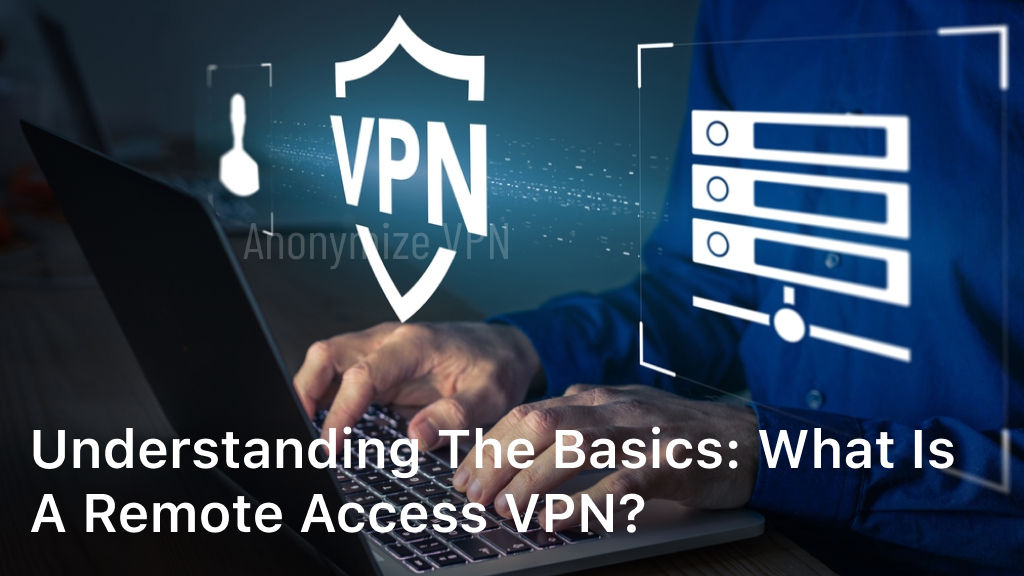21 .Onion Website From the Dark Web
“The deep Web” is the portion which isn’t searched in search engines. One aspect of the internet’s deep web are the dark websites that is found within darknets, which are layered proxy networks. Of all these darknets Tor (short to mean “The Onion Router”) is the biggest.
The article here will find out the basics about dark internet links (also known as Tor Links or Onion websites) and then browse some of the most popular Tor websites.
How do you define onion websites?
Onion websites (aka Tor sites) are websites that are only accessible via the dark web. You aren’t able to view them in any other browser. The URLs they use have .onion as the domain instead of common domains of the surface web such as .com as well as .net. Onion websites are regarded as secret in the web’s deep, and use Tor to secure connection to them, which keeps users and site creators private.
How do onion websites work?
If you attempt to connect to an .onion web page, your connection is routed across the web, going through three times around random servers before it gets to the destination site. Each server has security layers, and these layers lead to the term The Onion Router. This is why websites that are that are on the dark web are referred to as Tor links.
At least three times your data passes through.
- The entry node is bound to know you IP address
- Middle (or relay) node that prevents an exit point from determining the entry node you entered and makes it difficult to link these two data sources.
- The exit node is aware of the website you’re connecting to but doesn’t know who you are.
The three nodes are able to separate the IP address of your computer from the destination and permit two individuals to talk without the other or any intermediary not knowing who the other one is.
Tor along with the Onion Browser
In of the Tor network, sites are unable to make use of domain names that are normal. Instead, they utilize pseudo-domain names beginning with .onion. The domains are not issued by an official central authority however, they are created using cryptographic key.
It isn’t possible to access these .onion websites from your regular web browser, which is the one you’re browsing this page with. Before you click any of the links from the dark web below, you’ll have to install an account with the Tor Browser (also called the Onion Browser) or a different service which allows dark web access including The Brave browser.
It is important to note that all connections within the Tor network are encrypted from end-to-end as standard, which means that there’s no additional encryption layer required like for regular websites. That’s the reason that most onion websites don’t have the S in HTTPS. Don’t worry, it’s not a problem with the Tor Browser will display the onion icon instead of a familiar lock icon to indicate that your connection is secure.
How do I access onion sites?
On your computer
- Download the Tor Browser by clicking here
- You can install Tor Browser to your PC by opening the downloaded file and then following the instructions
- Open Tor Browser
- Simply click “Connect” at the Tor start page.
- Then wait for the connection to become established
- Explore the dark web!
On Android
- Get this version of the Tor Browser app from here
- Open Tor Browser
- Click “Connect”
- Once the connection has been established and you are connected, you will be able to see an onion icon on the status bar
- Start exploring!
On iOS
- Install Onion browser from the App Store
- Open Onion Browser
- “Connect to Tor” Click “Connect with Tor”
- After connecting After connecting, select “Next” to set your level of security:
- Unsecure
- Moderate
- Secure
- Click “Start Browsing”
- You’re in!
The best onion sites based on category
While this dark internet is notorious for hosting a myriad of illegal content–dark marketplaces to purchase legal drugs, gore websites and more–there are a lot of legitimate websites and services when you are aware of where to search.
Here are the most popular .onion sites available on the internet dark, classified according to categories:
Search engines for dark web
Ahmia
http://juhanurmihxlp77nkq76byazcldy2hlmovfu2epvl5ankdibsot4csyd.onion/
Search engines that are found on the dark web can be somewhat of a contradiction since dark web sites in essence are not indexable by the conventional search engines.
Ahmia however, isn’t an ordinary search engine. It was created in the year 2000 by security expert Juha Nurmi Ahmia basically consists of a listing of “hidden” websites which do need to be discovered. Onion sites can be “crawled” and then added to the list if they have “robots.txt” file is allowed and is not listed as a blacklist of sites that contain materials that are used to commit abuse. Site owners can also provide their own .onion websites to be indexed.
Haystak
http://haystak5njsmn2hqkewecpaxetahtwhsbsa64jom2k22z5afxhnpxfid.onion/
Like Ahmia, Haystak is also an onion search engine which employs a unique dark web crawler to filter out potentially harmful web content.
Haystak also has an upgrade version that provides advanced search options, access to archived content as well as email alerts.
Torch
http://xmh57jrknzkhv6y3ls3ubitzfqnkrwxhopf5aygthi7d6rplyvk3noyd.onion/
Torch is among the most well-known and oldest onions search engines found on the dark internet, delivering more than 80,000 users each day. Torch is funded primarily through advertising–purchased in BTC, of course–which is why you’ll find the front page blanketed with old-school banner ads of dubious origins.
DuckDuckGo
https://duckduckgogg42xjoc72x3sjasowoarfbgcmvfimaftt6twagswzczad.onion/
The web’s most-loved alternative to Google has earned a name for itself simply by not recording your searches, but offering satisfactory results. This privacy-focused focus is what makes it the default search engine, and also one of the top open-source search engines.
In contrast to Ahmia and Haystak however, DuckDuckGo doesn’t search .onion websites. You can use it to browse for normal websites from the security from the privacy of your Tor Browser.
The Hidden Wiki
http://zqktlwiuavvvqqt4ybvgvi7tyo4hjl5xgfuvpdf6otjiycgwqbym2qad.onion/wiki/
The most sought-after ways to navigate on the internet dark is to make use of an engine for searching in any way. Much like the early times of internet the dark web has various indexes of sites such as The Hidden Wiki.
The community-edited .onion Wikipedia is full of Tor hyperlinks to a array of resources and services operating on the dark web. A lot of these dark web links are no longer in use and a lot than a few of them are linked to frauds or illegal actions. You click on the link at your own discretion!
Tor Links
http://torlinksge6enmcyyuxjpjkoouw4oorgdgeo7ftnq3zodj7g2zxi3kyd.onion/
TorLinks acts as an alternative or a alternative directory site to the well-known Hidden Wiki. It’s split by commercial link (from cryptocurrency services to gambling websites) in addition to non-commercial hyperlinks (like the social networks). However, it’s not as comprehensive than that of the Hidden Wiki. As always, you should use Tor Links with care, since it contains onion links that may lead to illegal activities.
Media, news and other information sources
ProPublica
http://p53lf57qovyuvwsc6xnrppyply3vtqm7l6pcobkmyqsiofyeznfu5uqd.onion/
The first publication online that was awarded an award of Pulitzer was an early major magazine to have an .onion address.
ProPublica has a variety of things in a different way. The source of its funding is the deep pockets that is the Sandler Foundation and various other similar organisations.
The ProPublica website for browsing its .onion website is very effective and the site’s existence is a major win for privacy as well as freedom of speech.
Archive Today
http://archiveiya74codqgiixo33q62qlrqtkgmcitqx5u2oeqnmn5bpcbiyd.onion/
Archive.today (formerly called Archive.is) is an initiative that seeks to safeguard the web’s cultural and academic heritage.
In 2012, the company was established. It is a website storage service that stores snapshots of sites and allows users to “go back to the past” and look at what websites were like before and what information they included.
Archive.today is seen as a crucial instrument to monitor developments across corporate and government websites, to preserve the historical heritage and ensure that information is kept out of the reach of autocrats. Archive any site you wish to, or access historic records whenever they are you can find them.
The New York Times
https://www.nytimes3xbfgragh.onion/
In order to make its news easier to access for readers all over the globe The New York Times launched its onion service in the year of 2017. It doesn’t contain any “hidden” articles here, it’s just identical to the regular web edition. However, readers in countries where there is censorship by the government would appreciate a safe method to access the news.
BBC
https://www.bbcnewsd73hkzno2ini43t4gblxvycyac5aw4gnv7t2rccijh7745uqd.onion/
In the wake of the NYT The BBC announced a dark web “mirror” of their international edition in 2019. Be aware that certain features of the regular website are not accessible via the .onion version, for example BBC iPlayer.
https://www.facebookwkhpilnemxj7asaniu7vnjjbiltxjqhye3mhbshg7kx5tfyd.onion/
What is the reason that one of the biggest companies that is known for its intrusiveness as well as its controversial policy on clear names, have an .onion address?
Facebook recognizes efforts by various governments to block access to a platform that allows users from across the internet to communicate and collaborate in a free manner. Although its .onion address isn’t going to make it easier to manage an account that is anonymous but it does make Facebook more accessible in areas that have censorship.
CIA
http://ciadotgov4sjwlzihbbgxnqg3xiyrg7so2r2o3lt5wz5ypk4sxyjstad.onion
The CIA may seem like an odd choice for an article for privacy lovers however Tor is actually a unique relationship with that of the U.S. government: it was originally designed in authorities from the U.S. Navy to help individuals who had been posted to foreign countries to safely relay information back. In the same spirit the CIA created an onion website to assist people all over the globe gain access to its resources safely.
Bitcoin wallets
Wasabi Wallet
http://wasabiukrxmkdgve5kynjztuovbg43uxcbcxn6y2okcrsg7gb6jdmbad.onion
Wasabi Wallet is an Bitcoin wallet that does not just hide all of your information in the Tor network, but it also lets you “join” the transactions of other users to improve your privacy. This makes it very difficult to determine the person you’re paying.
The process comes with a cost however, in contrast to similar “tumbler” and “mixing” services There is no chance of Wasabi and its customers might make a profit from your cash.
Email services
ProtonMail
https://protonmailrmez3lotccipshtkleegetolb73fuirgj7r4o4vfu7ozyd.onion/
The company is based in Switzerland, ProtonMail is an encrypted email service that’s extremely popular among cryptocurrency fans. Although it’s not free, it’s extremely secure.
Riseup
http://vww6ybal4bd7szmgncyruucpgfkqahzddi37ktceo3ah7ngmcopnpyyd.onion
Riseup is a free email service for activists from all over the globe.
In 1999, activists started the site in Seattle in 1999, the site is now more than six million users around the world. It has a newsletter that is published in several languages. It also it does not just run onion services on its website, but also for all of its chat and email services.
Other tools and services for privacy
Keybase
http://keybase5wmilwokqirssclfnsqrjdsi7jdir5wy7y7iu3tanwmtp6oid.onion/
Keybase is a fascinating identity service designed to allow users to link the appearance of your online identities in a secure way. The user can connect the PGP keys or let the website create one for you and then use it to connect the accounts of your Twitter account, Github account, or Bitcoin address to each other.
Keybase provides extremely user-friendly, secure chat and sharing of files through its app.
ZeroBin
http://zerobinftagjpeeebbvyzjcqyjpmjvynj5qlexwyxe7l3vqejxnqv5qd.onion/
Pastebins are a type of text sharing service that are useful for sharing and sending large chunks in code, or even text. ZeroBin provides a secure version of the service, only decrypting and encrypting text within the browser. This means their servers are unaware about the information that passes through it.
SecureDrop
http://sdolvtfhatvsysc6l34d65ymdwxcujausv7k5jk4cy5ttzhjoi6fzvyd.onion/
The preferred choice of journalists and source anonymous, SecureDrop allows you to send confidential information to others without divulging your identity. Numerous news outlets, including those mentioned above, include SecureDrop feature on their .onion websites.
MEGATor
http://crqkllx7afomrokwx6f2sjcnl2do2i3i77hjjb4eqetlgq3cths3o6ad.onion/
MegaTor is an extremely simple, private file sharing system that isn’t available on the internet as a standard service. It’s cheap and pretty fast.
PrivacyTools
http://privacy2zbidut4m4jyj3ksdqidzkw3uoip2vhvhbvwxbqux5xy5obyd.onion/
The tools we’ve mentioned above are only the top of the iceberg. If you’re interested by privacy and internet anonymity, you should take the time to explore PrivacyTools, a vast list of anti-surveillance software including services, educational, and other information.
Impreza Hosting
https://imprezareshna326gqgmbdzwmnad2wnjmeowh45bs2buxarh5qummjad.onion/
Impreza Hosting is an online service that lets you host your site in the Tor network. It offers an .onion URL as well as an interface that lets you manage your Tor website easily. It also claims that no personal data is needed to make use of the service and that payments can be made using cryptocurrency.
Bonus: Sci-Hub
Although technically, it’s not an onion site however, we’re including Sci-Hub as an interesting case of a site that you have access to via Tor. Sci-Hub provides access to millions of scientific articles typically behind paywalls. Due to copyright violations, Sci-Hub is considered illegal and has been banned in several countries. As with any other website use it entirely at risk.
What is the dark internet?
The dark web has information that can only be accessed through networks such as Tor. Websites on the dark web are able to use .onion as the domain of their URLs. Tor browsers generate secure entry points and routes for users, ensuring that activities on the dark web remain anonymous. The encryption technology moves the data of users through many intermediary servers, which secures the identity of the user and provides privacy.
Due to its anonymity, this dark internet is full with illegal websites and services. It is extensively used by criminal groups that include ransomware criminal gangs. The dark web is also employed by journalists, whistle-blowers and others who aren’t engaged in a criminal act but require to safeguard their identities and communications. By using the dark internet, those who live in areas of censorship are also able to access information and updates.
Differentialities between dark and web
Dark webs and deep web are commonly utilized interchangeably, however they’re two distinct terms. In essence, the main distinction between them is the deep web has internet content that isn’t available to locate using search engines, whereas it’s a network hidden from view which requires a particular browser to access it.
Deep web refers to a section of the internet that you cannot access via search engines such as Google as well as Bing. Sometimes referred to in the context of “non-indexed” content is any content that’s concealed behind some type of access control, such as the log-in form or code words. Have you ever wondered how large the deep web really is? It is home to 7,500 terabytes information, in contrast to 19 terabytes on the “surface” web. If you look at it an alternative perspective, it is between 90-95 percent of all internet.
Dark web also known as”the darknet,” is a tiny part of the deep web. It’s a secretive collection of sites you can only access via a particular browser. Because all activity in the dark internet is private in default, it’s certain that the most fraudulent transactions that happen on the internet occur. The study by researchers from King’s College London that examined the contents of more than 2700 darknet websites revealed that about sixty percent contained illegal content. In addition legitimate websites exist on the dark internet.




